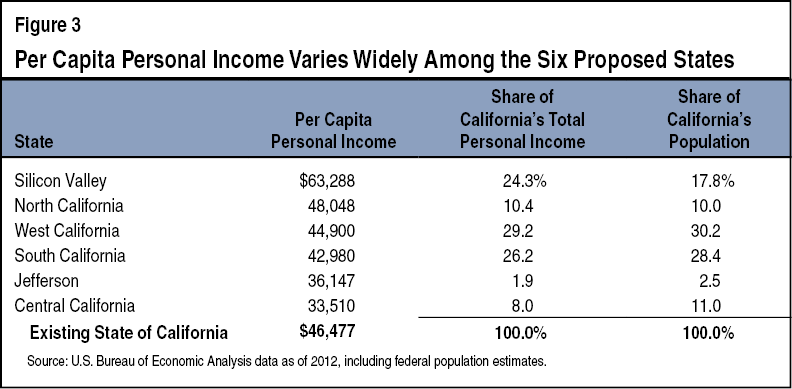A proposed ballot measure to split California would result in six states of wildly varying degrees of prosperity.
The California Legislative Analyst Office reports:
Significant Income Differences Among the Proposed States. Personal income is a broad measure of the size of the economy, which includes wages and salaries, proprietors’ income, rental income, dividends, interest income, and transfer receipts such as payments by governments to individuals. When measured on a per-person (or per capita) basis, personal income data can show which areas tend to have higher-income (generally, wealthier) or lower-income (generally, less wealthy) individuals and households. As shown in Figure 3 (see next page), per capita personal income (PCPI) in today’s California is $46,477, which ranks 12th among the 50 U.S. states. Wealth in today’s California, however, is disproportionately concentrated among households in the San Francisco Bay Area, including Silicon Valley, which benefits from a concentration of technology firms. For this reason, if California is split into six states as proposed by this measure, two of the six states (Silicon Valley and North California) would have PCPI above that of today’s California, while the other four states would have lower PCPI based on 2012 data.
Silicon Valley’s PCPI—$63,288—currently would rank as the highest among U.S. states ($3,600 above Connecticut, but still below the District of Columbia). Central California would rank as a leading agricultural producer. Its PCPI and that of Jefferson, however, would be notably lower than the PCPI of the other four new states. Currently, Central California’s PCPI would rank last among all U.S. states (about $150 below Mississippi).

